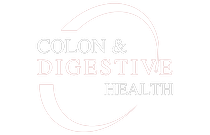Karim Shakoor M.D. Guide To Understanding Colorectal Cancer Risk Factors

- colondigestive
- May 8, 2024
- 4:36 am
- No Comments
There’s no denying the importance of understanding colorectal cancer risk factors to maintain good health. Karim Shakoor, M.D., a leading expert in the field, provides invaluable insights into the various factors that can increase or decrease an individual’s risk of developing this type of cancer. With colorectal cancer being one of the most common and deadly cancers worldwide, having a comprehensive understanding of the key risk factors is crucial for early detection and prevention.
Key Takeaways:
- Familial history: Individuals with a family history of colorectal cancer are at a higher risk of developing the disease. Regular screenings should be considered for such individuals.
- Lifestyle factors: Unhealthy lifestyle habits such as a high-fat diet, smoking, excessive alcohol consumption, and lack of physical activity can increase the risk of colorectal cancer. Adopting a healthy lifestyle can help reduce this risk.
- Age and medical conditions: Age plays a significant role in colorectal cancer risk, with the likelihood increasing after the age of 45. Additionally, certain medical conditions like inflammatory bowel disease can also elevate the risk of developing colorectal cancer.
What is Colorectal Cancer?
Definition and Overview
Now, let’s look into the basics of colorectal cancer. Colorectal cancer is a type of cancer that begins in the colon or rectum. It typically starts as a polyp growth, which can be noncancerous (benign) or pre-cancerous (malignant). Over time, pre-malignant polyps can grow into cancer.
Types of Colorectal Cancer
Now, let’s explore the types of colorectal cancer. There are two main types of colorectal cancer: colon cancer and rectal cancer. Colon cancer begins in the colon, while rectal cancer begins in the rectum. Both types can also be referred to collectively as colorectal cancer. Any differences in treatment and prognosis depend on the specific location of the tumor within the colon or rectum.
| Colon Cancer | Rectal Cancer |
| Starts in the colon | Starts in the rectum |
| Mainly affects the large intestine | Mainly affects the last several inches of the colon |
| Can cause changes in bowel habits | It may cause blood in stool |
| Treatment may involve surgery, chemotherapy, and radiation | Treatment may include surgery, chemotherapy, and radiation |
Another important distinction is that colorectal cancer is a highly treatable and often curable disease when caught early. Regular screening tests can help detect colorectal cancer early when it is most treatable. Any person with an average risk for colorectal cancer should start screening at age 45.
Risk Factors for Colorectal Cancer
Some individuals may be at a higher risk of developing colorectal cancer due to various factors. Understanding these risk factors can help in preventive measures and early detection.
Non-Modifiable Risk Factors
Some individuals have non-modifiable risk factors that they cannot change. These include age, family history, personal history of colorectal cancer or polyps, and inherited genetic syndromes. Age is a significant factor, with the risk increasing as individuals age. A family history of colorectal cancer can also elevate the risk, especially if a close relative has had the disease.
- Age
- Family history
- Personal history of colorectal cancer or polyps
- Inherited genetic syndromes
Knowing your family history and discussing it with your healthcare provider can help determine if you are at a higher risk for colorectal cancer.
Modifiable Risk Factors
Risk factors that can be modified to reduce the chances of developing colorectal cancer include unhealthy diet, lack of physical activity, obesity, smoking, and heavy alcohol use. Making lifestyle changes such as adopting a healthy diet rich in fruits, vegetables, and whole grains, engaging in regular physical activity, maintaining a healthy weight, quitting smoking, and limiting alcohol consumption can significantly lower the risk of colorectal cancer.
- Unhealthy diet
- Lack of physical activity
- Obesity
- Smoking
- Heavy alcohol use
Though some risk factors cannot be changed, modifiable risk factors offer an opportunity to take proactive steps toward reducing the risk of colorectal cancer.
Understanding the Pros and Cons of Early Screening
Benefits of Early Detection
The early detection of colorectal cancer through screening can be life-saving. By identifying pre-cancerous polyps or early-stage cancer, treatment can be initiated promptly, leading to better outcomes and higher survival rates. Screening tests can also help prevent cancer from developing in the first place, as polyps can be removed before they become cancerous. Early screening can reduce the overall burden of colorectal cancer by catching it at a more treatable stage.
Potential Risks and Limitations of Screening Tests
While screening tests are beneficial, they have risks and limitations. False-positive results can lead to unnecessary anxiety and additional testing. In contrast, false-negative results can provide a false sense of security. Some screening tests may also carry risks, such as perforation during a colonoscopy or exposure to radiation during imaging tests. It is essential to weigh the benefits of early detection against the potential risks and limitations of screening.
For instance, individuals with a family history of colorectal cancer may require more frequent or invasive screening tests, which can come with their own set of risks. Individuals must discuss risk factors with a healthcare provider to determine the most appropriate screening schedule.
A Step-by-Step Guide to Reducing Your Risk
Many factors contribute to the risk of developing colorectal cancer. Still, there are steps you can take to help reduce this risk.
Below is a breakdown of strategies you can implement to lower your chances of developing this disease:
Include fiber-rich foods, limit red meats, and ensure calcium and vitamin D intake. Consult a dietitian for personalized recommendations.
Screening is vital for early detection of colorectal cancer. Follow guidelines based on personal risk factors and family history.
Exercise regularly to reduce your risk of colorectal cancer. Aim for 150 minutes of moderate-intensity exercise per week. Maintain a regular screening schedule for early detection and prevention of colorectal cancer.
Stay proactive and prioritize your health. Prevention is critical to reducing your risk.
Early Signs of Colorectal Cancer
Not all cases of colorectal cancer present with noticeable symptoms in the early stages. However, paying attention to subtle changes in your body can help in the early detection of this disease. Symptoms such as persistent abdominal discomfort, changes in bowel habits, rectal bleeding, unexplained weight loss, and fatigue should not be ignored. If you experience any of these signs, it is crucial to consult your healthcare provider promptly.
When to Consult Your Doctor
Suppose you notice any of the potential symptoms associated with colorectal cancer. In that case, scheduling an appointment with your doctor is imperative. Early detection can significantly improve treatment outcomes and overall prognosis. Your physician may recommend further testing, such as a colonoscopy, to investigate the source of your symptoms. Do not forget that timely medical intervention plays a crucial role in managing colorectal cancer effectively.
Signs such as persistent abdominal pain, unexplained weight loss, blood in the stool, or significant changes in bowel habits should not be ignored. Consulting your healthcare provider for a proper evaluation is necessary for ruling out or diagnosing colorectal cancer. Do not forget your health is a priority, and seeking medical advice promptly can make a significant difference in your treatment journey.
Treatment Options for Colorectal Cancer
Overview of Current Treatment Modalities
If you or a loved one has been diagnosed with colorectal cancer, it’s crucial to understand the current treatment modalities available. These treatment options include surgery, chemotherapy, radiation therapy, targeted therapy, and immunotherapy. The choice of treatment will depend on the stage of cancer, its location, and the overall health of the patient.
Pros and Cons of Each Treatment Approach
When considering the various treatment approaches for colorectal cancer, weighing the pros and cons of each option is crucial. Here is a breakdown of the advantages and disadvantages of surgery, chemotherapy, radiation therapy, targeted therapy, and immunotherapy:
| Surgery | Chemotherapy |
| Pros | Pros |
| Effective in removing localized tumors. | It can kill cancer cells throughout the body. |
| It can be curative for early-stage colorectal cancer. | Shrinks tumors before surgery. |
| Cons | Cons |
| Possible risks associated with surgery. | It may cause side effects such as fatigue and nausea. |
To fully understand the pros and cons of each treatment approach, it’s necessary to consult with a multidisciplinary team of healthcare professionals, like Karim Shakoor M.D. and his team at Colon and Digestive Health Specialist Clinic. This team can provide personalized recommendations based on your specific circumstances.
Furthermore, remember that each individual’s response to treatment can vary, and side effects can differ from person to person. It’s crucial to discuss all potential risks and benefits with your healthcare team to make informed decisions about your colorectal cancer treatment plan. Be mindful that the goal is to tailor the treatment to your unique needs and improve your quality of life.
Living with Colorectal Cancer
All individuals diagnosed with colorectal cancer face a unique journey that involves various challenges and hurdles to overcome. Equipping yourself with the knowledge and resources to navigate this path effectively is necessary. Here, we will explore some key aspects of living with colorectal cancer and offer guidance on managing your health during treatment and beyond.
Tips for Managing Your Health During Treatment
- Stay close to your oncology team to ensure coordinated care and support.
- Follow a nutritious diet to maintain your strength and promote healing.
- Exercise as tolerated to boost energy levels and enhance overall well-being.
- Seek emotional support from loved ones, counselors, or support groups to cope with the mental and emotional impact of cancer.
Though the road may be challenging, remember that prioritizing your health and well-being is crucial in your colorectal cancer journey.
Long-Term Survivorship and Quality of Life
On the journey of colorectal cancer, the focus extends beyond treatment to long-term survivorship and quality of life. Surviving colorectal cancer comes with its own set of adjustments and considerations as you transition into a new phase of life post-treatment.
A key aspect of long-term survivorship is maintaining a balance between regular follow-up appointments and embracing life beyond cancer. In the post-treatment phase, attention to physical, emotional, and mental well-being is necessary to ensure a positive quality of life. Regular screenings, healthy lifestyle choices, and ongoing support can significantly impact long-term outcomes.
Conclusion
From above, Karim Shakoor M.D. guide provides valuable insights into the various risk factors associated with colorectal cancer. By understanding these risk factors, individuals can make informed decisions to lower their chances of developing this disease. Everyone must be aware of the potential risk factors and take proactive steps toward prevention and early detection.
Regular screenings, a healthy lifestyle, and knowing your family history are critical components in reducing your risk of colorectal cancer. By following Karim Shakoor M.D. guidelines and staying informed about these risk factors, you can empower yourself to take control of your health and minimize your chances of developing colorectal cancer.
FAQ
Q: What are the risk factors for colorectal cancer?
A: Risk factors for colorectal cancer include age, family history, inflammatory bowel disease, diet high in red meat and processed foods, obesity, smoking, and lack of physical activity.
Q: How can family history affect colorectal cancer risk?
A: Individuals with a family history of colorectal cancer or polyps are at a higher risk of developing the disease themselves. Genetic factors can play a significant role in predisposing someone to colorectal cancer.
Q: What role does diet play in colorectal cancer risk?
A: A diet high in red meat, processed foods, and low in fiber can increase the risk of colorectal cancer. Maintaining a healthy diet rich in fruits, vegetables, and whole grains is essential to reduce the risk of developing the disease.
Q: Is colorectal cancer preventable?
A: While not all cases of colorectal cancer are preventable, leading a healthy lifestyle that includes a balanced diet, regular exercise, and avoiding risk factors such as smoking can help reduce the risk of developing the disease.
Q: What screening tests are available for colorectal cancer?
A: Common screening tests for colorectal cancer include colonoscopies, fecal occult blood tests, and stool DNA tests. It is essential to discuss with your healthcare provider to determine the most appropriate screening test based on your risk factors.
Q: What are the warning signs of colorectal cancer?
A: Warning signs of colorectal cancer may include changes in bowel habits, blood in the stool, abdominal discomfort, unexplained weight loss, and fatigue. It is essential to consult with a healthcare provider if you experience any of these symptoms.
Karim Shakoor, M.D. is a board-certified Gastroenterologist and the founder of Colon & Digestive Health Specialists, LLC. He completed his residency and fellowship at Cook County Hospital, which is known for having one of the most extensive programs in the country. Karim Shakoor M.D. is dedicated to providing his patients with the highest level of care to improve their quality of life. He specializes in the treatment of digestive disorders, including abdominal pain, colon cancer, constipation, diarrhea, diverticulitis, gas, gastrointestinal bleeding, heartburn, irritable bowel syndrome, peptic ulcers, swallowing difficulty, and ulcerative colitis.
© 2024 All Rights reserved © 2024 by Colon & Digestive Health Specialists

